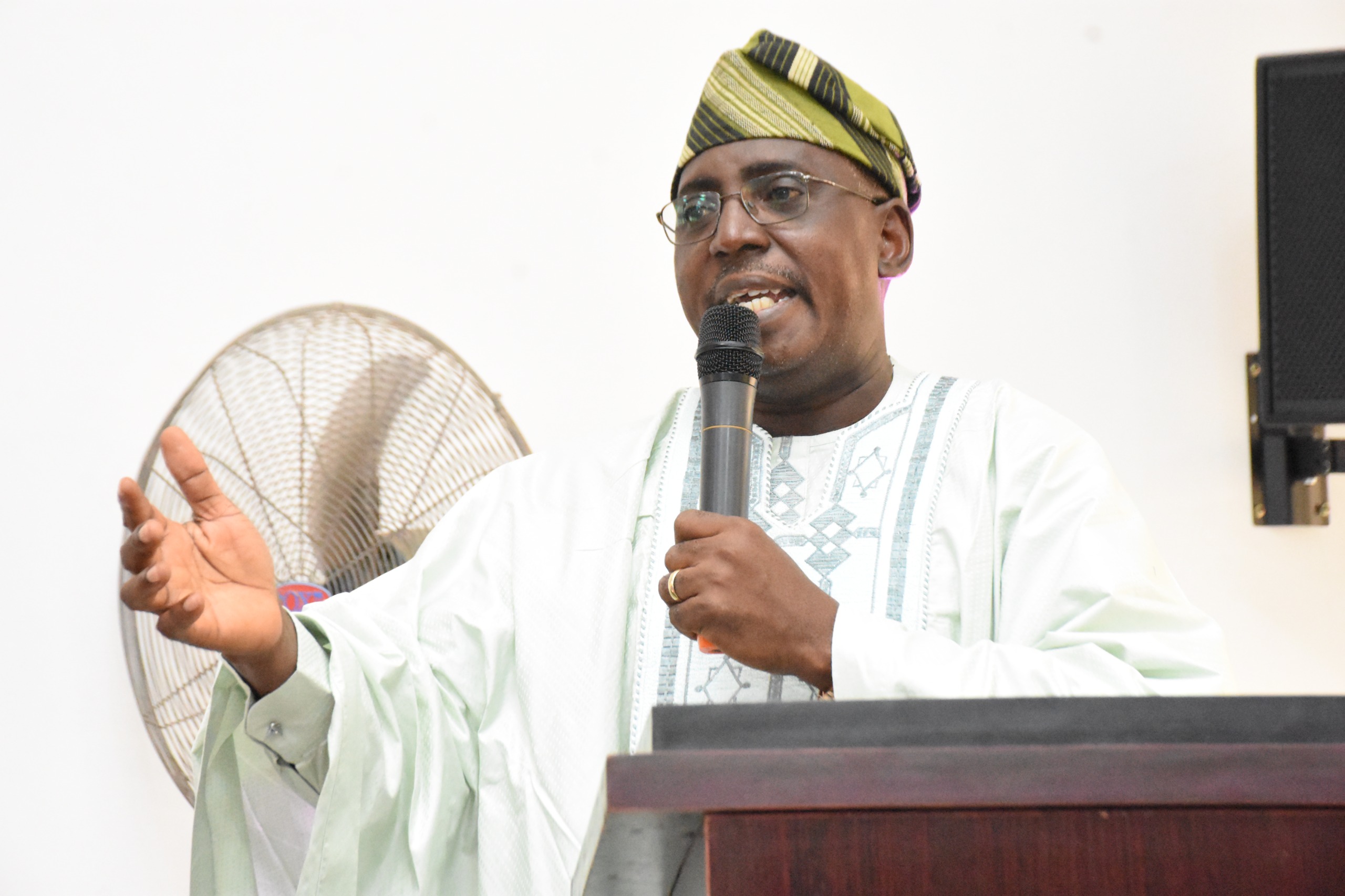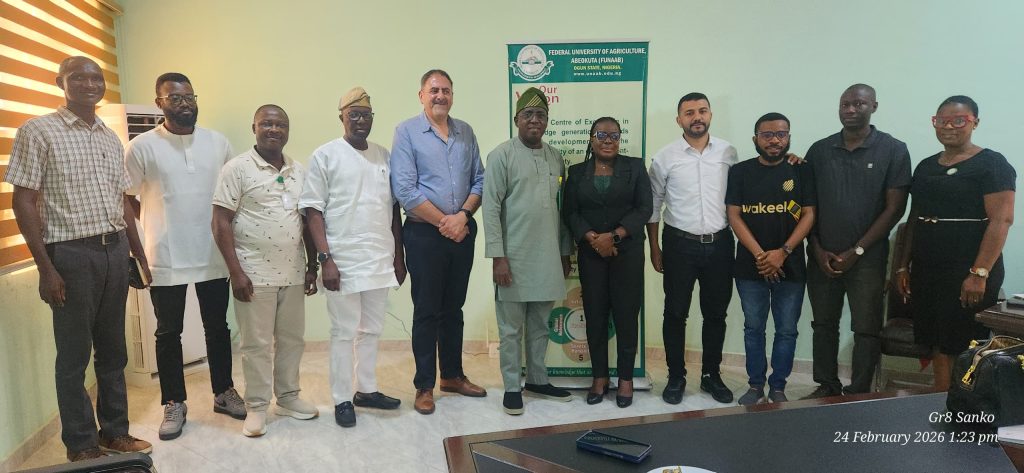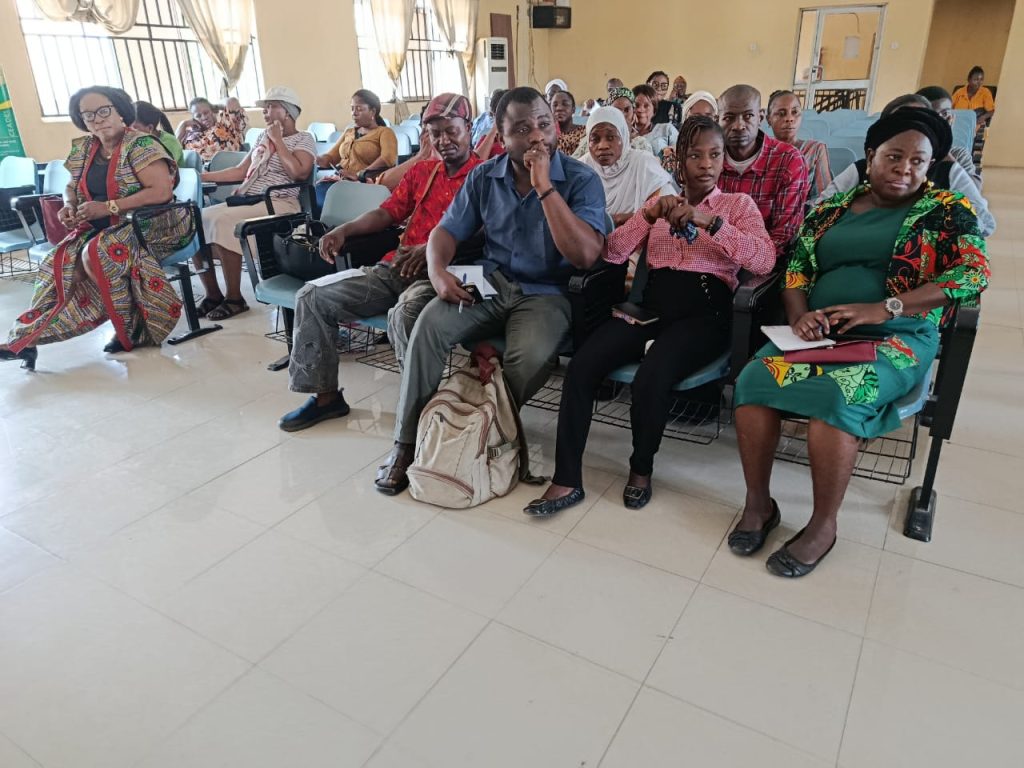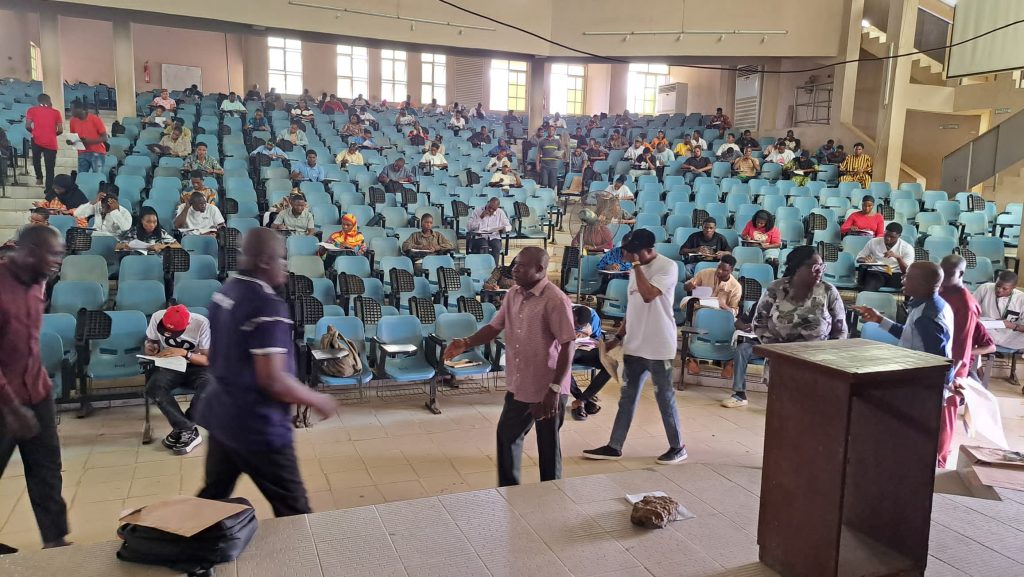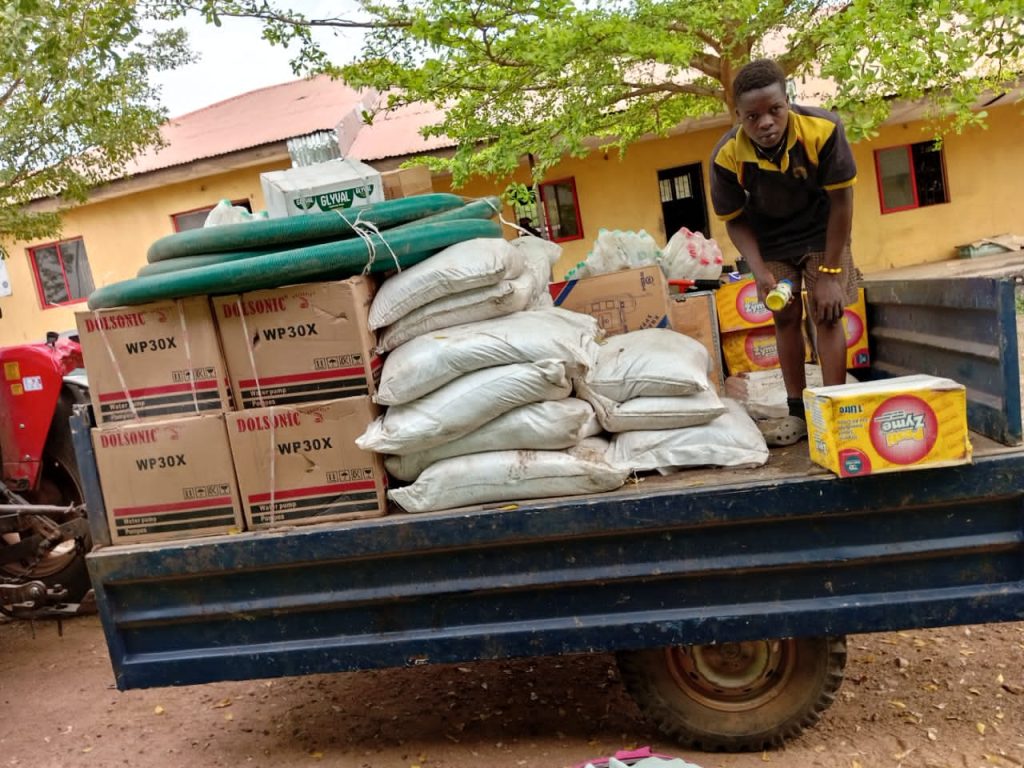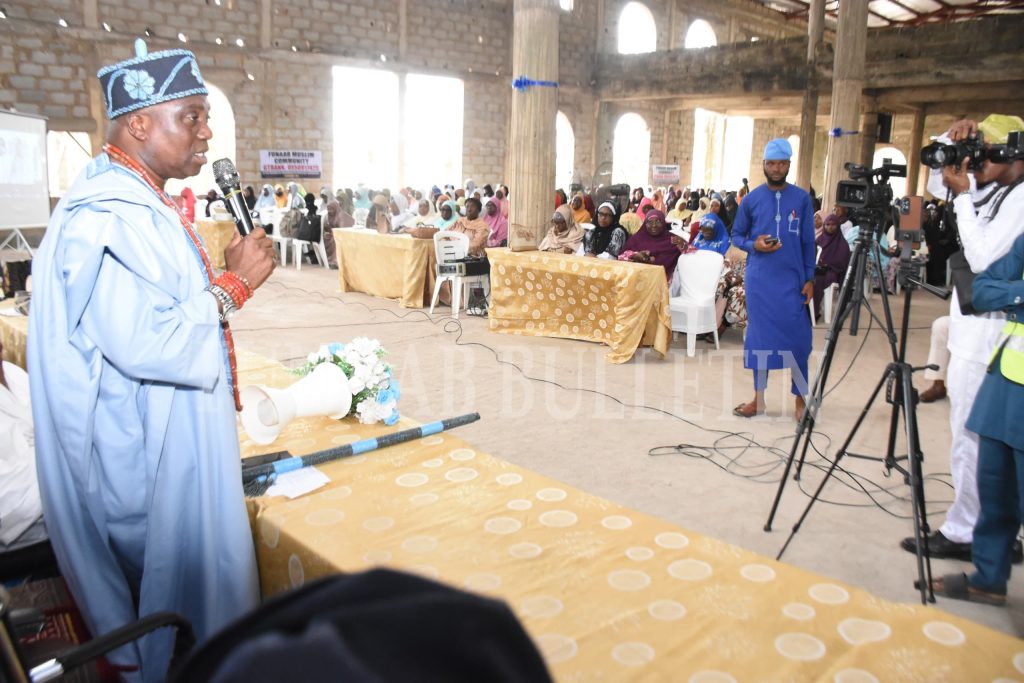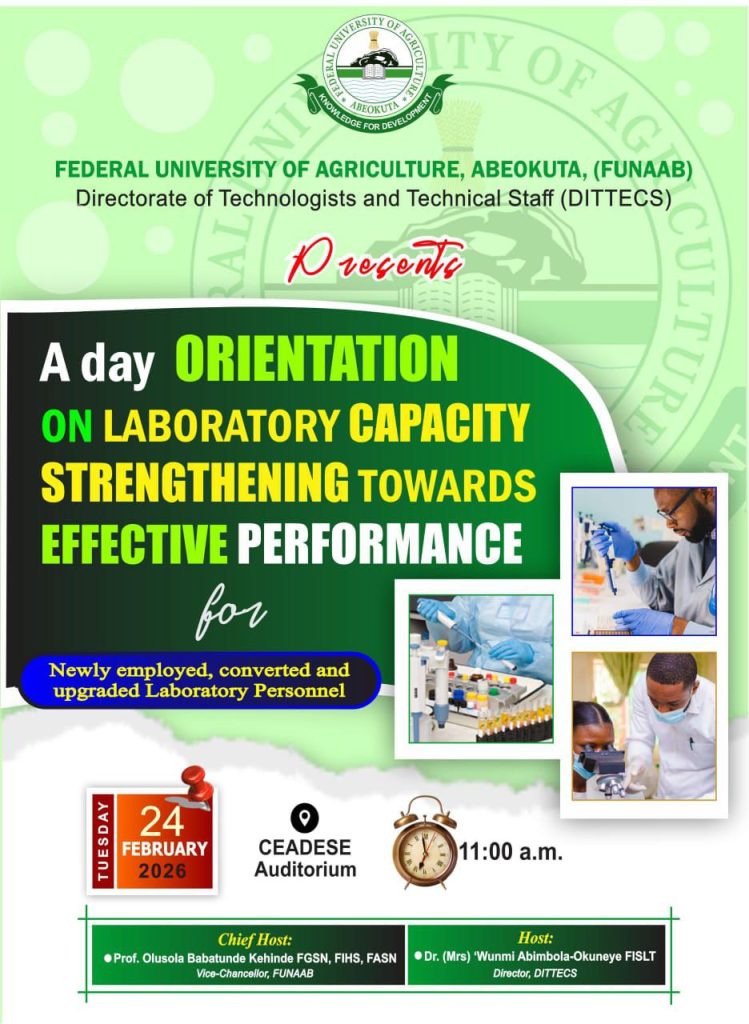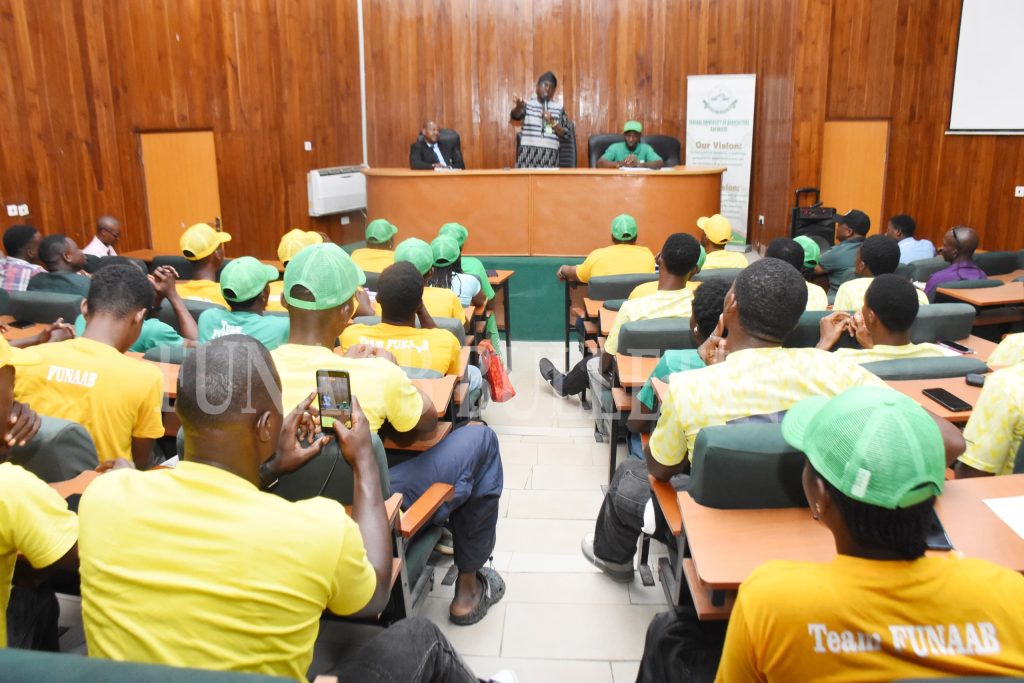Last Updated on August 29, 2024 by Olasunkanmi Olajide
By Olasunkanmi Olajide & Emeka Oluka
In an era where global collaboration is key to academic and technological advancement, the Federal University of Agriculture, Abeokuta (FUNAAB), has emerged as a leading example of how strategic partnerships could drive innovation, foster development, and enhance global reputation.
Under the dynamic leadership of the 7th Substantive Vice-Chancellor, Prof. Babatunde Kehinde, a Plant Breeder and Geneticist, FUNAAB has transcended its role as a traditional academic institution to become a pivotal player in driving agricultural innovation, revitalisation and sustainable development.
As a foremost University of Agriculture in Africa, going by the Times Higher Education World University Ranking, FUNAAB’s rise as a hub of excellence is anchored in its extensive network of over 30 partnerships with prestigious organisations and institutions, both within Nigeria and internationally.
These collaborations have been instrumental in enriching the University’s research capabilities, advancing agricultural practices, and positioning FUNAAB at the forefront of global discourse on food security and technological innovation.
A testament to FUNAAB’s growing international influence was the recent visit of the German Consul General to Nigeria, Mr. Weert Borner, and the Consul General of the Kingdom of the Netherlands in Nigeria, Ambassador Michel Deelen. Their visit not only reinforced the University’s commitment to global engagement but also led to the establishment of a FUNAAB Desk Office at the German Consulate in Lagos.
The move symbolised FUNAAB’s strategic efforts to deepen its international partnerships, benefiting both the University Community and the broader society.
FUNAAB’s leadership in agricultural innovation is further exemplified by its collaborations with international institutions such as the Hubei University of Technology, South China Agricultural University, and Hubei Dijing Seed Industry Co. Through these partnerships, the University has embarked on a landmark project to enhance soybean and sorghum cultivation in Nigeria, with the establishment of a 1-hectare Varietal Trial Farm on campus. It was a significant step towards promoting food security and sustainable agricultural practices across the country.
The University’s commitment to equipping its graduates with practical skills is evident in its collaboration with CWAY Nigeria Dairy Industries Co. Ltd, Jobberman, DOIT Services and Mastercard Foundation. The partnerships have provided students with invaluable industry exposure, ensuring that FUNAAB graduates were not only academically proficient but also ready to meet the demands of the workforce.
Innovation lies at the heart of FUNAAB’s Mission, as demonstrated by its groundbreaking projects. In partnership with the National Information Technology Development Agency (NITDA), the University has launched a Smart Brooding System (SBS) programme, integrating technology with agriculture to create sustainable farming practices.
Additionally, the solar-irrigated organic farm project, in collaboration with HortiNigeria, underscores FUNAAB’s dedication to harnessing technology for agricultural advancement.
FUNAAB’s focus on livestock production and food value chain initiatives was highlighted by its partnership with NOLAP to establish a Beef and Dairy Ranch on campus. The initiative would not only enhance the University’s research capabilities but also provide students with practical training in modern livestock management.
Environmental sustainability is another key priority for FUNAAB. The University partnered with the Forestry Research Institute of Nigeria (FRIN) and they have jointly planted over 4,000 trees on a 4-hectare land on campus, promoting a greener environment and fostering a conducive learning atmosphere. The species are Khaya Senegalensis (Mahogany), Terminalia Superba (Afara) and Parkia biglobosa (Locust beans).
The generous donation of 600 day-old chicks, 72 bags of feed, and 21 bottles of Poultry Zymes by alumnus Dr. Deola-Tayo Lordbanjou further exemplified the University’s commitment to sustainable practices and community engagement.
FUNAAB’s global reach extends through its collaborations with prestigious institutions such as the University of the West of Scotland and Kansas State University, focusing on knowledge transfer and sustainable agricultural practices.
The University’s partnership with the Centre for Tropical Livestock Genetics and Health, Roslin Institute at the University of Edinburgh, and the Institute of Agricultural Research for Development (IRAD) in Cameroon underscores its role in advancing research in livestock genetics and food value chain development.
The SmartSoil Project, another innovative initiative by FUNAAB, was aimed at improving soil health and enhancing crop yields, contributing significantly to food security in Nigeria.
In collaboration with HarvestField, which forms part of a broader effort to maximise agricultural productivity on unused University land, FUNAAB is currently establishing a 250-hectare farmland with a particular focus on soybean production.
In a move to boost its Internally Generated Revenue (IGR), FUNAAB has planted over 3,000 cocoa seedlings on a 7-hectare plot. Additionally, the University’s partnership with Wafroex, a leading apiculture and agro-allied organisation, is enhancing the practice of beekeeping, while its collaboration with AUXANO Farms to establish a 500-hectare farm estate on campus represents a significant stride towards revitalising agriculture in Nigeria.
The recent donation of 2,000 Day-Old Chicks (DOCs) by Amo Farms, including feeds and drugs for the Farm Practical Year (FPY) students, is yet another example of how FUNAAB’s partnerships are directly benefiting its students and enhancing their practical training.
The expansion of the 100-hectare yam plantation in collaboration with the Assetrise Smart Agropreneurship Project further solidified FUNAAB’s commitment to agricultural development, including the cultivation of a 2ha Sesame seed farm, 1ha sweet potato farm, 1ha plantain farm and a 4-hectare Maize Farm by the Institute of Food Security, Environmental Resources and Agricultural Research (IFSERAR), as well as the 22ha Bio-Ethanol Cassava Farm.
FUNAAB’s contributions to the agricultural sector extend beyond research and development. The University has engaged in the massive production and sale of fresh and dry mushrooms, broilers, cassava and tomatoes, catering to the needs of its immediate environment. The efforts not only generate revenue but also provide practical learning opportunities for students.
In the area of healthcare, FUNAAB has partnered with Scorpio Eye and Access Dental Clinics to establish state-of-the-art facilities at the University Health Centre. The partnerships ensure that both staff and students have access to quality healthcare services, further enhancing the University’s commitment to the well-being of its community.
Through strategic partnerships, FUNAAB has not only enhanced its research and development capabilities but has also established itself as a leader in agriculture, technology, and sustainable practices. Under the visionary leadership of Professor Babatunde Kehinde, Fellows of the Genetics Society of Nigeria, Institute of Health and Safety, including the Agricultural Society of Nigeria, the University continues to expand its network of collaborators, positioning FUNAAB as a global hub for innovation and academic excellence. As FUNAAB’s influence grows, so too does its impact on the agricultural and academic landscape in Nigeria and beyond.
Meanwhile, the University has commenced major harvests across multiple farms which has culminated in large-scale harvest of crops across various University farms. The 2-hectare tomato farm, cultivated by Farm Practical Year (FPY) students under the Centre for Community-Based Farming Scheme (COBFAS), is currently being harvested.
Additionally, the 22-hectare Cassava Bio-Ethanol Farm has been partially harvested. The 9-hectare FUNAAB/NOLAP Maize Farm was harvested recently, while the 8-hectare COBFAS Maize Farm is set to begin harvesting in a few weeks.
In other developments, the University has also achieved milestones with the sale of broilers, beef, pork, yams, and groundnuts, as well as the opening of the FUNAAB Bookshop.
The much-awaited 3MW Solar Project is expected to take off soon, as all the equipment has been adequately installed.
Authors
-
Mr. Olajide is a seasoned professional with over a decade of expertise in the fields of Public Relations, Media and Communications. He currently holds the position of Assistant Director, Media.
View all posts -

